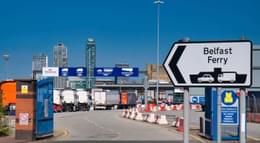
Brexit: the economics
Determining the economic implications of Britain withdrawing from the European Union is almost as politically charged as the decision itself.
Donald Rumsfeld, the former US Defence Secretary, famously spoke of 'known unknowns' and 'unknown unknowns' – things we don't know we don't know.
The existence of so many variables and competing factors mean the Brexit debate is rare in its seeming ability to traverse both categories. Indeed, this very uncertainty, some argue, is reason enough for the country to remain within the European Union.
The problem of uncertainty is compounded by the absence of precedent. Never before has a country of the United Kingdom's size withdrawn from a political union like the EU.
Undeterred, various think tanks and economic consultancies have sought to estimate the effects of Brexit on the country's GDP. Predictions range from +1.55 per cent to -5.50 per cent depending on the methodology and timescale used. The International Monetary Fund has warned that Brexit could result in a severe economic and financial shock, both to the UK and the EU.
Timescale is undoubtedly an important first consideration in answering the question. A greater degree of consensus exists regarding the short term implications of Britain withdrawing from the EU, with experts from both camps agreeing the immediate impact is likely to be negative. The value of Sterling relative to the Euro has already weakened as speculation surrounding a possible 'yes' vote mounts. And with the UK currently operating a record current-account deficit, the country has a pronounced sensitivity to any reductions in foreign capital inflows.
The long-term implications, however, is where opinions really diverge. A key determinant in assessing which one is accurate is the nature of the UK's relationship with Europe once it has exited.
That Europe is the UK's greatest trading partner is not disputed (the EU accounts for roughly half of all British exports and imports). What is contested, however, is the EU's likely response in the event of the UK's withdrawal. Those in the 'remain' camp argue European leaders will have no choice but to make an example of the UK by imposing trade tariffs in a bid to subdue other member states from withdrawing from the Union or renegotiating their terms of membership. Eurosceptics meanwhile dispel this as a myth, countering that the floundering Eurozone economies could not afford a trade war with the UK – the world's fifth largest economy.
Those opposed to withdrawal argue the UK will be forced to comply with the same regulations whether it is in or out of Europe, adding that a UK at the heart of the EU is better placed to influence and shape such regulations. Regarding the cost of membership, they argue this is far outweighed by the net benefits the country receives, both in terms of enhanced trade and a greater presence on the world stage.
Another important aspect of the economic debate is the movement of labour. Many who are in favour of withdrawal argue the UK would once again take charge of its borders and impose an immigration system based on labour market demand, rather than a Europe wide system of free movement. Those in favour of continued membership argue that migration has been a major boost to UK economic output.
The reality is that in the event of a vote in favour of withdrawal, many of the factors dictating the country's long term economic fortunes will be out of the UK's hands. Instead, they're dependent on the reactions of European and international leaders and their willingness to facilitate the withdrawal process by continuing to trade freely with the UK. These are known unknowns.
More problematic, however, is the multitude of factors a UK withdrawal is likely to trigger. Edward Lorenz famously spoke of the 'Butterfly Effect'. The very nature of the globalised economy and economic interdependence make it impossible to accurately identify all of the competing factors and variables that will be affected should the UK vote to leave. These are unknown unknowns.












